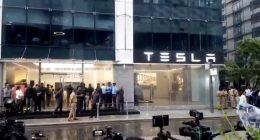Currently, Internet of Things is the emerging technology and many startups are coming up in this space. To nurture such startups, India has launched its first Centre of Excellence for IoT in Bengaluru.
Prime Minister Narendra Modi first announced CoE for IoT last year as part of the ‘Digital India‘. It has been built as a joint effort between the Government of India and Nasscom, along with Department of Electronics & Information Technology (DeitY) and Education and Research Network (ERNET).
Apart from them, it is also supported by Accenture, Cisco, Intel, HCL Technologies, Qualcomm, TCS and L&T Technology Services, among others.
The main objective of the center is to create innovative applications and domain capability. Additionally, the center will also help in building industry capable talent, and start-up community.
It will also function as an enabler of funding, accelerating, and mentoring for start-ups in this area. The CoE laboratory, along with the Nasscom 10000 Startups Warehouse, has the capacity to incubate up to 40 start-ups.
On announcing the launch, Nasscom President R Chandrashekhar said,
This Centre of Excellence has been created to act as a catalyst for developing the IoT startup ecosystem of the country as well as an accelerator of IoT capabilities providing the concept and scale for industrial and societal needs.
The CoE will also function as an enabler of funding, accelerating, mentoring and enterprise for the key emerging IoT startups who have been selected for incubation, after a rigorous process.
It is estimated that the CoE will cost about Rs 22 crore over a period of 5 years. 50% of the cost is expected to be met by the Centre and the rest by the Karnataka government and Nasscom.
According to Nasscom, 120 firms offer Internet of Things solutions in India. Out of those 120, nearly 60% of them emerged after 2010. In the last three years, Indian IoT firms received around $60 million in funding. The Indian IoT market is expected to be $15 billion by 2020. In five years, the global opportunity is likely to touch $300 billion.




